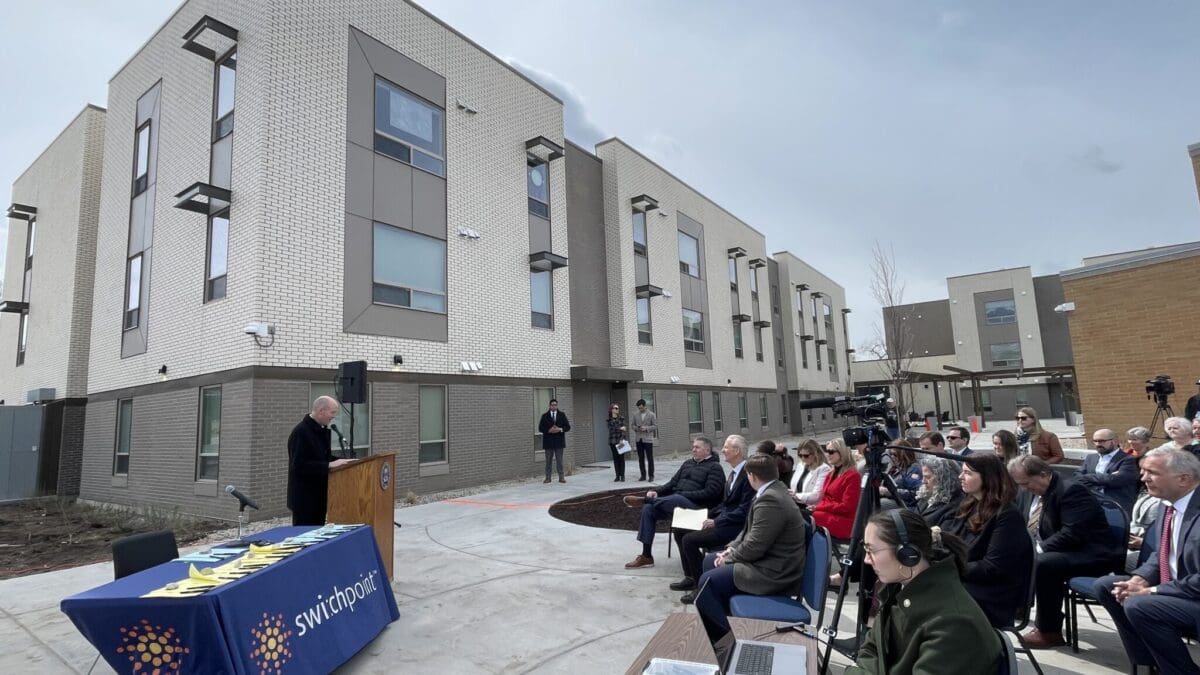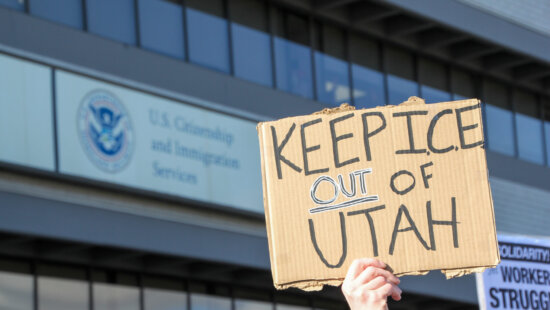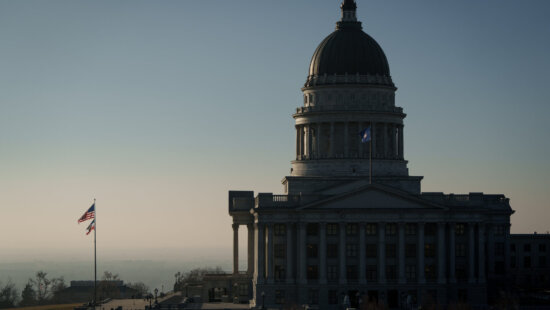Politics
‘Historic’: Cox ceremoniously signs 9 bills to highlight homeless efforts

Utah Gov. Spencer Cox holds a ceremonial bill signing to highlight the 2024 Utah Legislature’s work on homelessness and mental health issues during a news conference at Harris Community Village in Tooele on March 27, 2024. Photo: Katie McKellar/Utah News Dispatch
By: Katie McKellar, Utah News Dispatch
Utah Gov. Spencer Cox on Wednesday did a victory lap for what his administration and state lawmakers accomplished for homelessness and behavioral health at a ceremonial bill signing.
The governor applauded not only the over $50 million the Utah Legislature funded toward bolstering and increasing emergency homeless shelter services across the state (including $25 million for a new 600- to 800-bed shelter to be located somewhere in the state, location pending), but also cheered the nearly $4.5 million more lawmakers funded toward homelessness prevention programs, as well as over $11 million more for behavioral health.
Cox already signed all the homelessness and mental health bills before his deadline last week, but he held Wednesday’s ceremonious signing to highlight nine bills the 2024 Utah Legislature passed, all aimed at improving the state’s homelessness or mental health systems.
They included:
- HB298, which changes the current Utah Homelessness Council to the Utah Homeless Services Board, specify that the state’s goal is to reach a “functional zero” level of homelessness (meaning the number of people exiting homelessness is greater than those entering homelessness), while injecting performance and accountability measures on programs meant to reduce homelessness, substance abuse, on-street camping and other issues.
- HB299, a mental health bill that calls for a study of the Utah State Hospital and the state’s capacity for court-ordered treatment, including civil commitment, while also increasing the amount of time a patient experiencing mental illness can be involuntarily held, up from 24 hours to 72 hours.
- HB394, which requires the state’s Homeless Network Steering Committee to develop a funding distribution formula to ensure homelessness funds are distributed statewide.
- HB421 allows the state’s Homeless Services board to withhold state funding from cities that don’t enforce anti-camping ordinances or laws against panhandling in traffic. It also uses $2.5 million to start a new pilot program called HOME Court, meant to provide court-supervised treatment and services to people experiencing mental illness in Salt Lake County. Cox called for this program in his budget recommendation as a “less restrictive, civil option for individuals with mental illness who do not meet the standard for civil commitment or other criminal diversion courts.”
- SB26 makes changes to Utah’s behavioral health licensing provisions, meant to remove barriers for people going into mental health professions and increase the number of mental and behavioral health providers.
- SB27 creates a new statewide Behavioral Health Commission in the Utah Department of Health and Human services, meant to bring local and state governments under one umbrella to navigate behavioral health issues.
- SB139 establishes a process for the courts to order ongoing administration of antipsychotic medication to maintain a defendant’s competency to stand trial. It’s meant to prevent court-ordered mental health patients from cycling repeatedly through the Utah State Prison.
- SB212 allows the Utah State Prison to work with medical personnel to provide medication assisted treatment to inmates who had an active medication assisted treatment plan prior to incarceration.
- SB223 waives fees for foster children or homeless youth to apply for driver’s licenses, birth certificates or college transcripts.
Cox made homelessness one of his top priorities (along with housing) heading into the 2024 session, and while he didn’t get the full $128 million he recommended, he said he still came away thrilled, crediting lawmakers with making “historic” investments toward the issue.
“This is an incredible achievement — a historic achievement — and will make a real difference in some of our most vulnerable Utahns, as well keeping our communities safe,” Cox said, noting that the powerful philanthropist group called the Utah Impact Partnership agreed to match lawmakers funding with $15 million more toward emergency shelter efforts.
To celebrate, Cox, legislators and homelessness and mental health providers gathered at a news conference held not in Utah’s most densely populated county, Salt Lake County (where most of the state’s homeless services are located) — but off the beaten path on the other side of the Oquirrh Mountains in the city of Tooele.
The governor decided to shine a spotlight on the small city that acts as the beating heart of a mostly rural Tooele County because of a unique, first-of-its-kind project that opened just three months ago: Harris Community Village.
Harris Community Village in Tooele — a campus owned by the Tooele County Housing Authority and operated by Switchpoint Community Resource Center — features a 44-bed shelter that serves women, men and families, as well as 66 units of deeply affordable housing.
It’s the first project in Utah to feature both a homeless shelter (renovated from an old elementary school) and housing all on one property — and it’s a model the governor said should be replicated by other cities and counties across the state.
“I think this is a wonderful model,” he told reporters, “and one we’ll be talking to more counties about.”

















